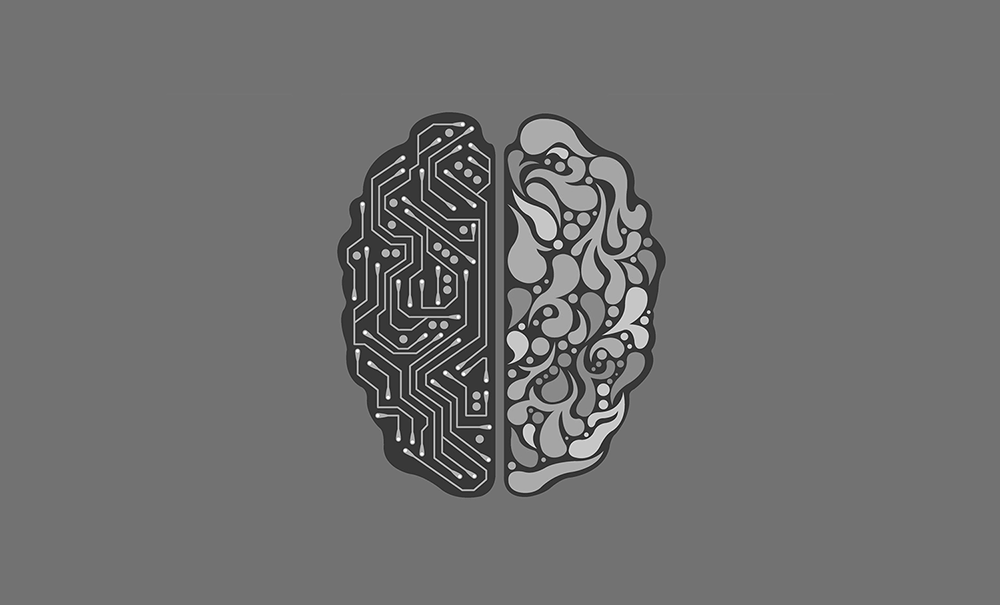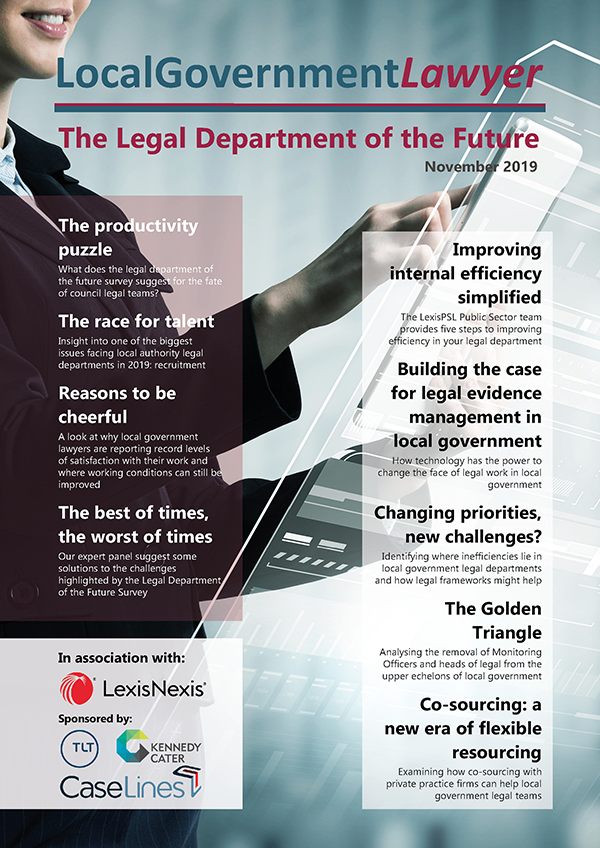AI: Hope or hype?
AI is predicted to bring a paradigm shift to the legal sector but what are the practical implications in the immediate future? Adam Carey looks at what legal technology can – and can’t do – in the foreseeable future.

Artificial intelligence (AI) is something we are all very familiar with thanks to the countless dystopian films on the subject but in the real world are the implications quite as serious? Current research and recent developments suggest that AI can offer much needed efficiency gains for the legal profession.
According to a recent whitepaper from Legal tech start-up Fountech, the practical applications of AI include streamlining document management, automated document analysis, easier legal research, automated drafting of legal documents and even case outcome prediction.
A little further down the line, blockchain technology could revolutionise many aspects of legal practice, starting with property law where the Land Registry is piloting the transfer of property title to blockchain.
Document analysis and E-discovery
Large or multiple documents no longer have to be read through by lawyers or researchers and can be analysed and summarised by AI (with varying degrees of depth), significantly streamlining processes such as due diligence or disclosure. The technology not only searches for important key words or phrases but can also identify the ‘meaning’ and relevancy of a document according to a lawyer’s search terms.
Lawyers are not cut out of these processes completely – the results of AI analysis will still be sent for high-level review by a lawyer, but the process does enable legal professionals to concentrate on the more complex parts of the process while leaving much of the grunt work to the machine. The process of document searching is refined through the lawyer telling the system what it is getting right and wrong, enabling it to produce more accurate results as time goes on.
Predictive analysis
AI’s handling of basic but useful search tasks is impressive but more impressive is where AI can complete a task to a level of accuracy beyond that of a lawyer. In 2017 a team of research scientists in Chicago produced a machine learning algorithm that analysed 240,000 justice votes and 28,000 cases decided by the United States Supreme Court dating from 1816 to 2015. Applying this analysis to past cases, it achieved 70.2% prediction accuracy at the case outcome level and 71.9% at the justice vote level.
When comparing the model’s performance against humans, Daniel Kats, lead author of the study at the Illinois Institute of Technology remarked that “Every time we’ve kept score, it hasn’t been a terribly pretty picture for humans”.
In 2017 this was cutting-edge, but this legal technology is now commercially available in various forms, including iterations that can study hundreds of thousands of cases to develop a statistical analysis of a judge, the likely success of an individual case in relation to past precedent and even the suitability of specific lawyers assigned to the case. Using this analysis, this technology can also provide basic advice on how to approach a situation based on how similar circumstances have resulted in the past.
Document drafting
While lawyers may not be able to outsmart new legal technology when it comes to predicting case outcomes, they will continue to be essential in the process of drafting legal documents.
However, new legal technology is capable of revolutionising legal document drafting. For instance, the outline of a legal document can be generated more quickly through the completion of a questionnaire. Lawyers simply have to detail the purpose of the contract and other relevant information.
The software can also review an existing contract or other legal document and suggest any corrections or additions should an important element appear to be missing. Not unlike the spell checker on a word processor, this process would not change the document automatically; instead it outlines the areas that may be incorrect and proposes sections that should be included.
Using this technology, legal documents can also be drafted via a simple graphical interface or chat bot. A graphical interface can ask the user to input the individual areas of a specific type of document which make the document bespoke (personal information, payment agreements etc.) and then feed that information into a contract template.
Blockchain
Much like AI, many see blockchain technology as capable of fundamentally changing the legal profession. But, while important to understand, the real-world effects of blockchain are still quite far down the road.
For legal applications, the most useful aspect of blockchain is its ability to facilitate smart contracts. Smart contracts, often referred to as “self-enforcing agreements”, record a contractual agreement on a public database (a “ledger”) where it cannot be changed and is automatically monitored and enforced (to varying degrees of sophistication).
Blockchain has the potential to prompt considerable changes in property law, specifically in relation to transactions and updating the land register. HM Land Registry has made advancements with the technology which, if implemented, would diminish the role of a property lawyer considerably. In April 2019, Digital Streets, the Land Registry’s blockchain research project, successfully ran a test sale and purchase of a semi-detached house which had in the month prior been sold in the real-world. The real-world sale in March had taken 22 weeks to complete, but Digital Streets’ app processed the sale in 10 minutes.
What makes the transaction much faster, according to Digital Streets, is blockchain’s ability to automate parts of the process (transaction of funds and updating the Land Register) as well as making each stage easily accessible to all parties involved via the app.
The Land Registry believe that blockchain could enable “speedier property transactions, more trust in the transaction, higher levels of security and increased transparency for participants in the transaction.”
But blockchain (specifically, Corda) is still only being trialled by the department and new ways of updating the land register will be researched until 2030. Speaking on whether blockchain would be introduced in the near future, a spokesman for the Land Registry said that the project “was more to look at emerging technologies [rather] than technology we could currently use. It’s making sure we are ready for the property market of the future.”
Time to invest?
In a 2016 report, Deloitte proposed that “the legal profession will be radically different in 10 years” as a result – in part – of advancements in legal technology. In 2019, however, the uses of AI legal technology are impressive but not quite paradigm shifting.
Local Government Lawyer’s 2019 survey suggests that council legal budgets reflect this with 2% of management in council legal departments predicting that their technology budget will grow “substantially” and a further 57% of respondents reporting that their budget will not change significantly.
Adam Carey is editorial assistant at Local Government Lawyer.

This article appeared in the Legal Department of the Future report, published in November 2019. To read or download the full report, please click on the following link: http://www.localgovernmentlawyer.co.uk/legal-dept-of-the-future

